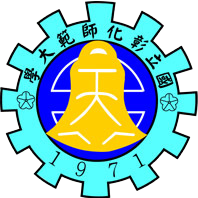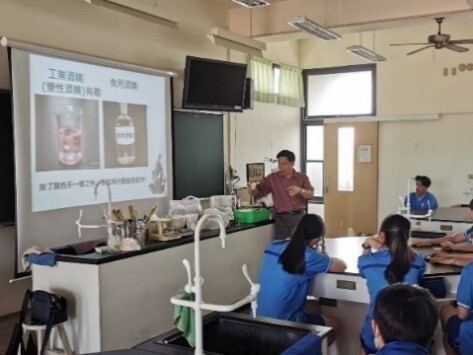SDG10.6.3 Access to university underrepresented groups recruit-2021
To facilitate the enrolment of underrepresented groups, NCUE provides a sufficient number of admission or employment channels for students, faculty, and staff:
1. NCUE provides opportunities for disadvantaged students (such as indigenous students, students with disabilities, and economically disadvantaged students).
1.1 Encourage departments to actively provide quotas to increase the admission opportunities for disadvantaged students.
1.1.1.In recent years, NCUE has actively provided additional quota for indigenous people and students with disabilities to be admitted to NCUE through different channels.
1.1.2.In order to take care of disadvantaged students comprehensively, the admission threshold of the total scores for NCUE's ‘individual application’ has been lowered since 2018, and preferential admission has been provided for economically disadvantaged students.
1.1.3.In 2019, the Yang-ying Admission Section was added to the ‘individual application’ process of NCUE only for economically disadvantaged students to apply for the examination. It lowers the standards of examination and screening, and simplifies the screening test process to increase admission opportunities.
1.1.4.In order to encourage departments to actively provide additional quotas for disadvantaged students, NCUE's ‘Measures for the Establishment and Promotion of the Admission Strategy Committee’ stipulates that the actual total registered number of additional quotas (including overseas students, students with disabilities, and indigenous students) of various programmes in a department in the current academic year will be multiplied by NTD 5,000 as additional affair expenses for the department.
- Please refer to Annex 10.6.3A, ‘Measures for the Establishment and Promotion of the Admission Strategy Committee’.
1.2 Reduce the burden for disadvantaged students—waive the registration fee as well as subsidise the transportation and accommodation expenses for ‘individual application’.
1.2.1. NCUE will exempt economically disadvantaged students (low-income households and middle-to-low-income households) from the registration fee when they take our self-held admission examinations, such as the ‘Second-stage Screening Test for Individual Application for Bachelor’s Programmes’, ‘Transfer Examination for Bachelor’s Programmes’, ‘Reference Screening Test and Admission Examination for Master’s and Doctoral Programmes’, and ‘Separate Admission of Students with disabilities to Bachelor’s Programmes’.
- Please refer to Annex 10.6.3B, Department Rules of Admission Guide for Individual Application for University Admission in 2020.
- Please refer to Annex 10.6.3C, NCUE’s 2020 Admission Guide for Separate Admission of Students with Disabilities.
- Please refer to Annex 10.6.3D, Transfer Admission Examination Guide for Bachelor’s Programmes in 2020.
- Please refer to Annex 10.6.3E, Guide on Reference to Master’s and Doctoral Programmes in 2020.
- Please refer to Annex 10.6.3F, Admission Guide for Master’s Programmes in 2020.
- Please refer to Annex 10.6.3G, Admission Guide for Doctoral Programmes in 2020.
1.2.2. During the second-stage screening test for ‘individual application’ and the ‘Admission Screening for 4-year Technological Undergraduate and 2-year Vocational Junior College Programmes’, the transportation and accommodation expenses required by the students will be subsidised according to their place of residence, and the departments will give the subsidies to the qualified candidates on the day of the screening test.
1.3 Implement projects such as the Higher Education Sprout Project and the Yang-ying Project to increase admission opportunities for disadvantaged students.
With the promotion of the Higher Education Sprout Project, NCUE has increased diversified admission opportunities for senior high school students year by year. This includes encouraging departments to actively provide quotas to increase admission opportunities for disadvantaged students, waiving registration fees, subsidising transportation and accommodation fees for ‘individual application’, and holding lectures in senior and vocational high schools (please refer to Appendix 10.6.3H). In 2021, we added the micro-course ‘Caring for Local Senior and Vocational High Schools’ to attract more students from the 20% lowest-income families in Taiwan to study at NCUE. According to statistics, NCUE admitted 1,226 students in 2020 from the 20% lowest-income families in Taiwan.
|
|
|
|
1.4 Subsidise disadvantaged students to enter university, and simultaneously, plan and improve the mechanism of schooling and study counselling to promote social class mobility.
In addition, in order to encourage economically disadvantaged students (children from low-income families, middle-to-low-income families, and families in special circumstances) to study hard and improve their chances of entering national universities, NCUE has planned a series of perfect schooling, study, and counselling mechanisms to enable students to exhibit their personal potential in National Changhua University of Education, in the hope of achieving the goal of increasing the number of economically disadvantaged students admitted annually.
In order to increase admission opportunities for disadvantaged students and effectively promote the mobility of social classes, NCUE’s Yang-ying Project pays attention to students' learning motivation as well as their experiences of striving for the best in the course of study and growth by lowering the screening standards of the General Scholastic Ability Test, waiving registration fees, and exempting interviews (written review only) in order to compensate for the impact of insufficient economic resources. Since the 2018 academic year, measures to support disadvantaged students have been added in the second-stage screening test of ‘individual application’, prioritising the admission of children from low-income families, middle-to-low-income families, and families in special circumstances and relaxing the admission criteria at the second stage. In other words, even if the disadvantaged students who take the second-stage screening test of NCUE fail to meet the admission criteria, the departments have to prioritise admission according to the circumstances. In addition, students from low-income families, middle-to-low-income families, and families in special circumstances who sign up for the second-stage screening test on subjects designated by general departments will be exempted from the screening test fee, and they can enjoy the subsidy of round-trip transportation and accommodation expenses. In 2020, the departments provided 98 admission seats for economically disadvantaged students (children from low-income families, middle-to-low-income families, and families in special circumstances). A total of 144 students applied and 61 students were admitted. Please refer to Appendix 10.6.3H for relevant admission measures and achievements.
- Please refer to Annex 10.6.3H, Admission Measures for Disadvantaged Students and Achievements in 2020.
2. NCUE provides adequate employment channels for the recruitment of faculty and staff from underrepresented groups, in accordance with regulations.
2.1 Pursuant to Article 38 of the People with Disabilities Rights Protection Act:
Any given government department (agency/organisation) of individual levels, public school, or public business agency/organisation/institution whose total number of employees is no less than 34 shall employ people with disabilities with the capability to work, and the number of employees with disabilities shall be no less than 3% of the total number of employees. In 2020, NCUE had 788 employees, among whom 43 had disabilities, and the proportion of employees with disabilities was 5.45%, higher than the stipulated standard.
2.2 Pursuant to Article 4 of the Indigenous Peoples Employment Rights Protection Act:
Among the total number of the following personnel hired by each level of government, public schools, and state-owned businesses, excluding those located outside Penghu, Jinmen , and Lianjiang County, there shall be 1 indigenous individual for every 100 workers: 1. Contract employee; 2. Stationed police; 3. Mechanic, driver, janitor, cleaner; 4. Fee administrator; 5. Non-technical workers not requiring the qualifications of civil servants. The total number of personnel listed in the preceding paragraph shall be one indigenous individual for every government agency, public school, and public institution at all levels with over 50 employees but less than 100 employees. The total number of these five categories of staff employed by NCUE was 11 in 2020, so according to the above regulations, the employment of indigenous faculty or staff members was not required. However, in order to take care of disadvantaged groups, NCUE had employed two indigenous faculty and staff members, which was higher than the stipulated standard.
|
Standard |
Percentage (number) of employees from disadvantaged groups that should be employed by NCUE according to regulations |
Actual percentage (number) of employees from disadvantaged groups |
Total number of faculty and staff members in NCUE |
|
People with Disabilities Rights Protection Act |
Faculty and staff members with disabilities 3% (23 people) |
Faculty and staff members with disabilities 5.45% (43 people) |
The total number of faculty and staff members in NCUE was 788 |
|
Indigenous Peoples Employment Rights Protection Act |
Indigenous faculty and staff members 0%(0 person) |
Indigenous faculty and staff members 18% (2 people) |
The total number of employees from the five categories was 11 |
- Please refer to Annex 10.6.3I, People with Disabilities Rights Protection Act.
- Please refer to Annex 10.6.3J, Indigenous Peoples Employment Rights Protection Act.


